Ionuț Tenie este, din 2016, directorul Bibliotecii Municipale Radu Rosetti din Onești. A fost timp de trei ani City Manager al Oneștiului, profesând înainte ca jurnalist de presă scrisă și de radio.
In the last few years there have been many public conferences and discussions on the importance of a library in raising the cohesiveness of the community it is part of, on its importance in supporting the book market, and, of course, in developing people’s taste for reading. But in order to do all these, a library (also) needs financial and human resources. What are the instruments a library manager can use in order to obtain these resources?
First, his or her main instrument is the Law for Libraries (334/2002), which mentions the way a library must be organized and function. Then, he needs a budget for the acquisition of books and audio-video documents, as well as for the projects the library organizes for the community and, last but not least, he needs enough well prepared people able to involve in the library’s activity. A part of these could be obtained by applying to European grants, through the sponsors’ help and by entering partnerships with educational institutions and by encouraging volunteering.
În Ordonanţa Guvernului nr. 26/2006, care aducea completări la Legea bibliotecilor din 2002, se spune că „în cadrul societății informației biblioteca are rol de importanță strategică”. Cum este ilustrată această importanță strategică în bugetul alocat bibliotecii de către autoritățile locale.
By rapidly solving the library’s need of editorial novelties in all domains, by offering financial support for the technological devices needed for the library’s activity and by supporting the development of the cultural projects organized for our community.
Spuneați mai sus că o altă sursă de atragere a fondurilor necesare desfășurării proiectelor în cadrul bibliotecii sunt programele europene de finanțare. Ați aplicat până acum la aceste programe? Care sunt perspectivele unei biblioteci municipale în obținerea acestor fonduri?
The Municipal Library is subordinated to Onești’s City Hall, so the library is not a legal entity. But helped by our colleagues from the City Hall we applied for such an European grant, which will probably be implemented this year. The application regards the rehabilitation of the library, but also its modernization and we will be able to both deal with the infrastructure problems and to implement the RFID system, so the library will reach a new performance level
Do you have a constant flow of purchasing new books for the library’s portfolio?
Indeed, we constantly request the acquisition of new books and we spend some thousand lei on new printed books and audiobooks yearly.
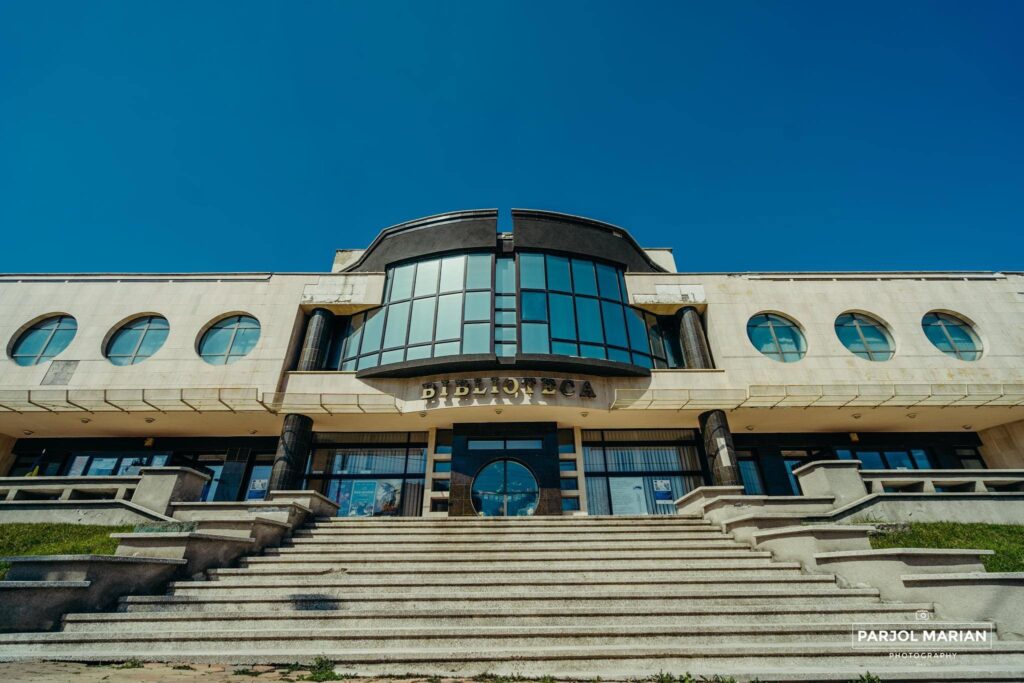
Can you please let me know which is the process of purchasing new books?
1. We analyze the editorial offer and check our stocks.
2. We make the acquisition list based on the readers’ requests and on the book series of which we already have previous volumes.
3. We prepare the documents requested by the main credit release authority.
Have you identified some reading trends among the readers who have been visiting the library you are managing? Maybe they differ from one age range to another?
Based on the age range, we have identified the following reading trends: children are interested in illustrated books and in new titles of various topics; adults are looking for new books of all genres and the older readers are interested in fiction books with larger fonts.
Can you portrait the readers who go to the Municipal Library for reading or borrowing books?
Children are always curious about new books, they act naturally and friendly.
The adults are mostly in a hurry, usually of a high-standard, but also grateful.
The older readers are more patient, talkative and sometimes demanding, but they pay very much attention to the librarians’ recommendations.
I have seen on the library’s website that together with your colleagues you have started many online projects promoting reading, among which a page of Book Recommendations, Book Fight and I Read, Do You Read? – for the latter you have invited the readers to send over short videos of them reading chapters of their favorite books. Next to these there are the offline projects, like Book on a Receipt. How have you created these projects and what is the feedback you got?
One of our objectives is to bring more and more readers to the library, to bring people closer to books and make them discover a new passion. As we all live these strange times when everything moved online, we adapted as well, so we focused more on our website, which we want to be an attractive platform, where everyone could find useful and interesting information. We considered that using the online resources we could reach more young potential readers to whom we could present appealing books. So in this way they have the chance to realize that our library can also adapt to the new realities and that they could find on its shelves the latest books they could borrow. Indeed, we implemented different projects, but all of them have the same purpose: encouraging reading. The more diverse they are, the more readers we can gain. Some might like Book Fight, others might be more attracted by the traditional or video reviews. We are so happy when, after recommending a book on this platform, the readers come and ask for it or when we see our visualizations continue to grow. This gives us hope and enthusiasm to carry on. I Read, Do You Read? project has brought us by far the biggest joy and surprise. We received many videos from children or young readers, including from some other libraries. We still have some videos to post on our website and social media, so we encourage all the readers to join us. This made us realize the future looks bright.
I was saying above that a library is an essential part of a community, supporting people’s development in an information-based society as mentioned in the Law. But how does the community get involved in the library’s activity?
The community gets involved in the library’s activity by participating at the events and projects it develops and by using the services the library offers. And this kind of participation is usually volunteering, which helps the library’s development. Helped by our community, our library has received the official recognition as REGIONAL CULTURAL CENTER, so it is not just a simple public library.
Beside preserving and growing the book stock and its collections, as mentioned above, the library you manage also organizes educational online or offline projects. You even started a project on local history. Which are the instruments you use to promote these projects and how do you manage to reach your target audience.
All the project we have, including the one with the local history, are communicated through posters and flyers spread all around the city, in schools and other cultural institutions (The History Museum and Capitol Cinema), but also shared on social media: Facebookand Instagram pages, on our website and on our YouTube channel. Each project has a certain target audience, which is informed directly or via e-mail, phone or other online platforms. We also collaborate with local or regional press.
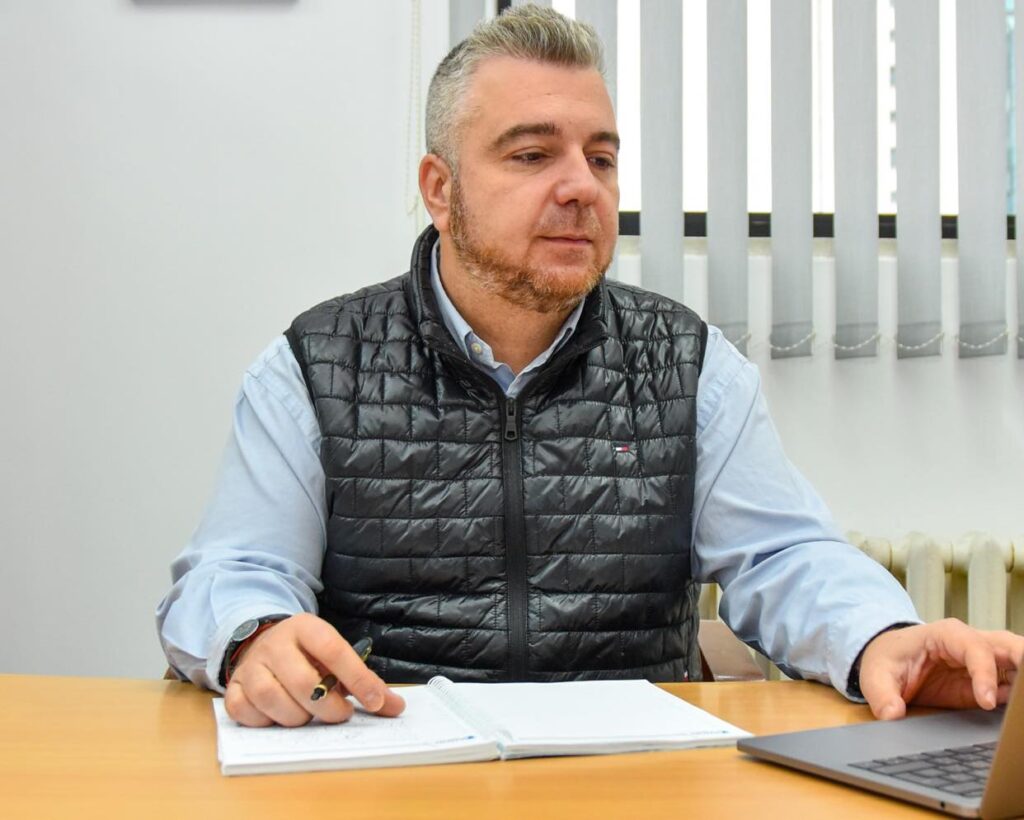
Some of the projects you have are made in partnership with other public or private institutions. One of the most interesting projects I found on the library’s website is CODE Kids – Children study coding in public libraries, developed by Progress Foundation, which you have implemented by organizing Kids4Coding Onești. How do you get to enter these partnerships? Do these organizations contact you or it is you and your team who approach them?
For CODE Kids – Children study coding in public libraries we have been contacted by Progress Foundation and have been very happy to participate to this project. There are also other projects initiated by our library for which we looked for partners and managed to collaborate with different public institutions or individuals.
Have you noticed if the people attending the events or the projects you organize come back to the library as readers, looking for books to read or to borrow? Or it’s just the other way around?
Of course, some of those who attend our events come back to the library also as readers. What is more, some of them are not only simple participants, but also initiate or coordinate different projects. Also, we organized a playroom for preschool children, where, beside the activities specially customized for their age and interests, we also offer them the opportunity to get familiar with the library and with the books.
I saw on the library’s Facebook page that many projects are organized by or in collaboration with teachers from several schools and high schools in the city. How do you convince these teachers to join you and how do you maintain their interest?
A library belongs to the community it is part of and our job is to offer these services, that is why we create these projects for both students and teachers. We try to always find new topics and new methods to attract them. Promoting these educational projects through online platforms and traditional media, we reach many teachers and pupils and manage to establish a strong relationship which has mutual benefits for the personal and professional development of all parts implied.
I am very proud to tell you that Radu Rosetti Library has become a cultural hub and teachers are keen to be part of our projects just because our activities have a great impact on the community.
In a recent online event on public libraries organized by Humanitas Publishing House, journalist Matei Martin, the host of the event, compared the contemporary librarian with an ancient oracle, meaning that the former is not just a book handler, but a professional able both to offer book recommendations and to find solutions for various informational necessities. Which are the methods and instruments you use in keeping your colleagues up to date with the editorial news and interested in achieving new professional abilities?
Being a librarian itself means looking for a constant personal development and getting to know all the editorial news in order to properly do one’s job. So dealing with the users’ requests and with the rapid development of technology are enough reasons for a librarian to wish to acquire new skills and abilities.
One of the biggest and most consistent national projects for libraries was Biblionet, through which many libraries in Romania have been modernized and acquired new technology tools. Which should be the new major project for libraries in your opinion?
I think the next big library project should be digitalization of the libraries’ documents.
Which is your favorite book, from which you would read for I Read, Do You Read? project?
Emotional Intelligence: Why it Can Matter More Than IQ by Daniel Goleman.

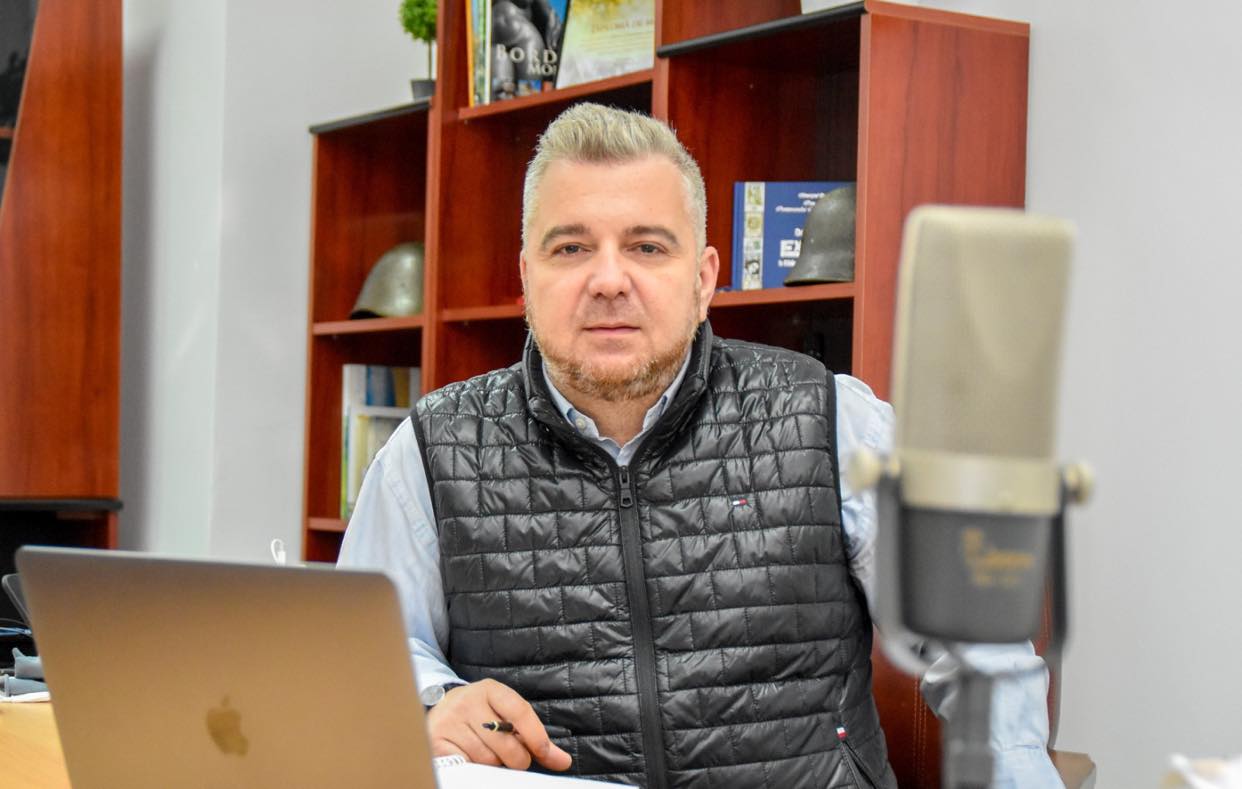
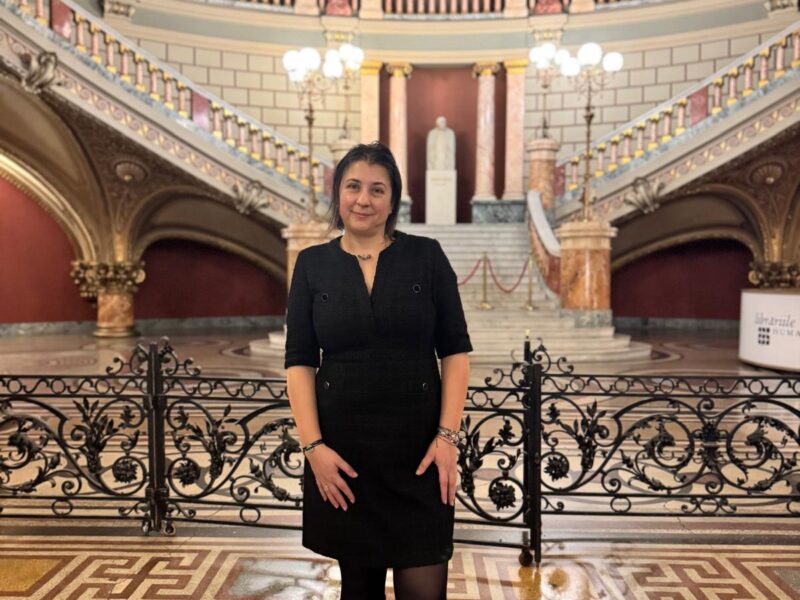
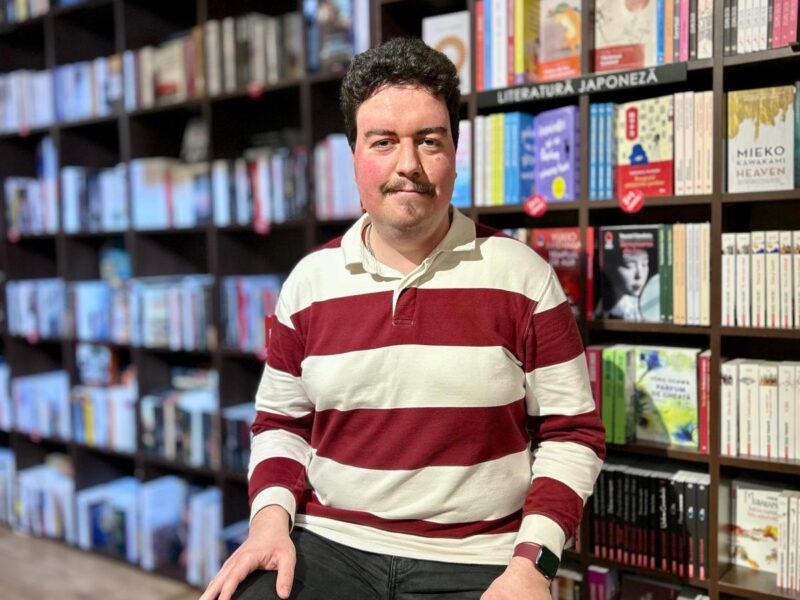
One thought on “Ionuț Tenie. Cu o bibliotecă integrată în comunitate, viitorul arată bine”